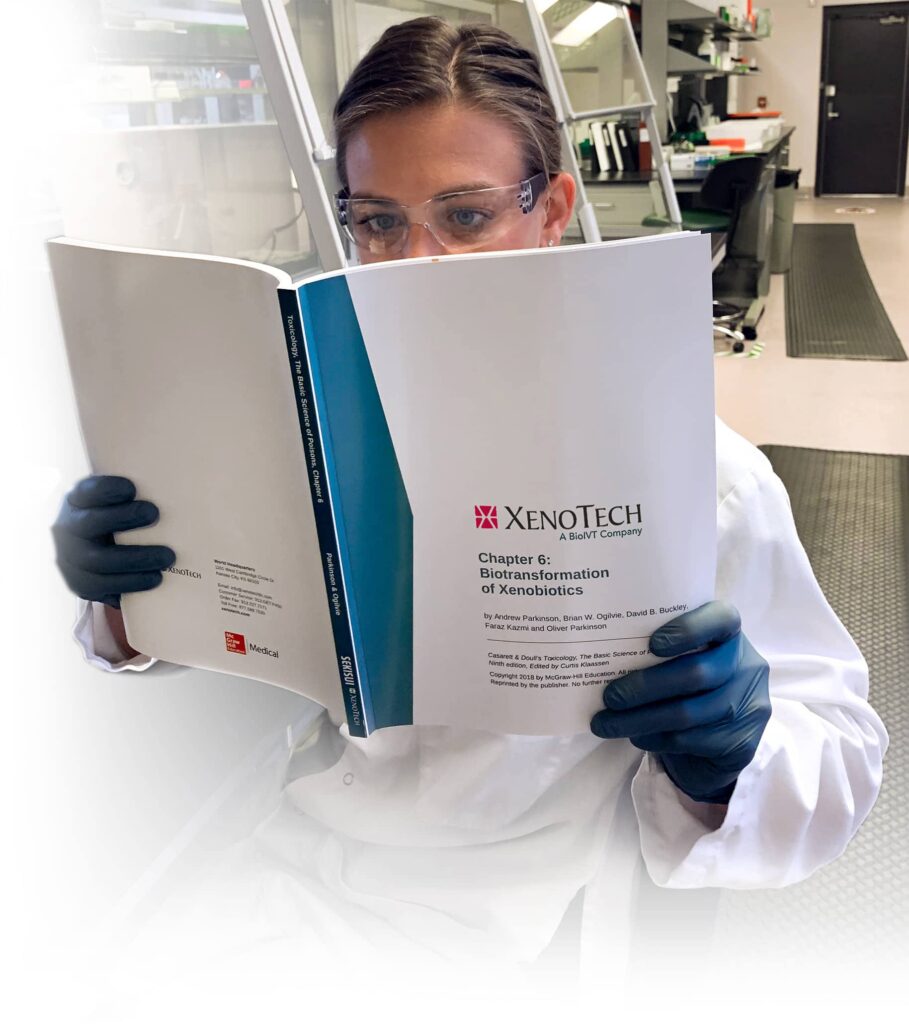
Microsomes Prepared from Eluted Enterocytes Yield High Cytochrome P450 and UGT Activities that are…
Full Title
Microsomes Prepared from Eluted Enterocytes Yield High Cytochrome P450 and UGT Activities that are Stable over Multiple Freeze/Thaw Cycles
Abstract
Enterocytes in the upper region of the small intestine play a significant role in the first-pass metabolism (pre-systemic clearance) of many orally ingested xenobiotics. For this reason, functionally active and stable intestinal subcellular fractions are required to assess the first-pass metabolism of drugs by cytochromes P450, UDP-glucuronosyltransferases and other drug-metabolizing enzymes. The present study summarizes enzymatic activity data from individual and pooled animal and human intestinal microsomes that were prepared from fresh duodenum/jejunum based on an enterocyte elution method with EDTA and various protease inhibitors. All samples were analyzed for their ability to catalyze testosterone 6ß-hydroxylation, 4-methylumbelliferone glucuronidation, and NADPH-cytochrome c reduction. Microsomes prepared from chemically eluted enterocytes had substantially greater CYP3A activity than those prepared from small intestinal samples subjected to mechanical scraping. Freezing/thawing small intestinal microsomes for up to 5 cycles did not cause significant loss of CYP3A, NADPH-cytochrome c reductase or UDP-glucuronosyltransferases (UGTs) activity. These results suggest that our elution method for processing small intestines is well suited to preserving microsomal enzymatic activities.